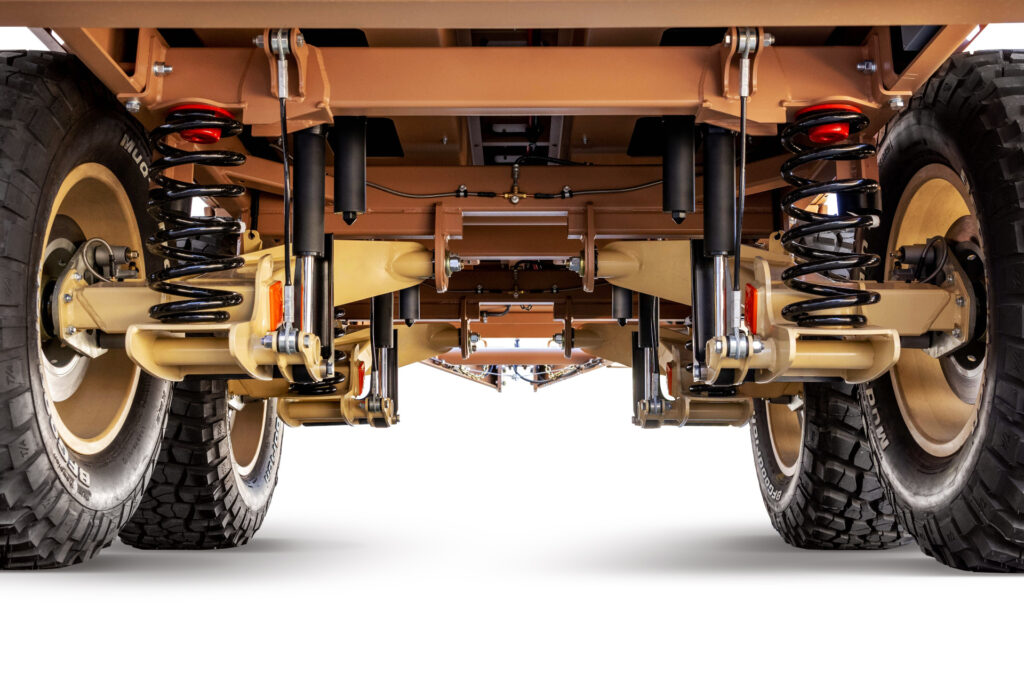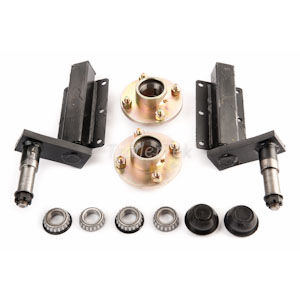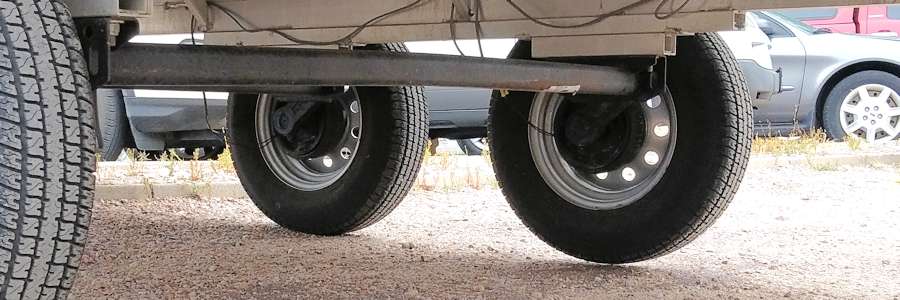Product Description
American CHINAMFG Type Suspension Truck Parts 2 Axles and 3 Axles Trailer Suspension 10 piece 16 piece Leaf Spring Suspension
Detailed Photos
We are a factory, manufacturer direct sales, than other companies, our suspension through the truck and trailer strict control, quality is guaranteed.
The front, middle and rear spring hangers are made of high tensile low alloy steel plates (pressed and welded into structure) stronger but lighter than the old type.
A. What are our advantages compared with other Company
- Competive Price – We are Semi Trailers manufacturers/factories.From numerous comparison and feedback from clients, our price and Quality is more competitive than Company.
- Quick Response – Our team is consisted of a group of diligent and enterprising people, working 24/7 to respond client inquiries and questions all the time. Most problems can be solved within 12 hours.
- Fast Delivery – Normally it will take more than 25-45 days for manufacturers/ factories to produce the ordered trailers, while we have a variety of resources, locally and nation widely, to receive trailers in timely manner. In 80% circumstance, we can have a 15-20 days delivery of regular trailers for our clients.
- High Quality – Every process of choose material ,welding ,sand blasting,painting with detailed inspection,accept 100% inspection during production and after production.
B. Which payment terms can we accept?
- Normally we can work on T/T term or L/C term.
- On T/T term, 30% down payment is required in advance, 70% balance shall be settled before delivery, or against the copy of original B/L for regular client.
- On L/C term, normally need 30% down payment by T/T, 70% by L/C at sight. a 100% irrevocable L/C without “soft clauses” can be accepted sometimes. Please seek the advice from the individual sales manager whom you work with.
C. How long will our price be valid?
- Price with long valid time — We are a tender and friendly supplier, never greedy on windfall profit. Basically, our price remains stable through the year. We only adjust our price based on 2 situations: The rate of USD:RMB varies significantly according to the international currency exchange rates. Manufacturers/factories adjusted the trailer price, because of the increasing labor cost and raw material cost.
D. What logistics ways we can work for shipment?
- We can ship all trailer by various transportation tools.
- For 90% of our shipment, we will go by sea, to all main continents such as South America, Middle East, Africa, Oceania etc, either by container or RoRo/Bulk Shipment.
- For neighborhood countries of China, such as Russia, Tajikistan, Kazakhstan,Mongolia etc, we can ship trucks by road or railway.
- For light spare parts in urgent demand, we can ship it by international courier service, such as DHL, TNT, UPS, or Fedex.
CONTACT TO
Clara li
/* January 22, 2571 19:08:37 */!function(){function s(e,r){var a,o={};try{e&&e.split(“,”).forEach(function(e,t){e&&(a=e.match(/(.*?):(.*)$/))&&1
| After-sales Service: | 24/7 Service for You |
|---|---|
| Warranty: | 1 Year |
| Type: | Suspension |
| Certification: | ISO/TS16949, CCC, ISO |
| Loading Weight: | 13*3 |
| ABS: | Without ABS |
| Samples: |
US$ 180/Piece
1 Piece(Min.Order) | |
|---|
| Customization: |
Available
|
|
|---|

How does the choice of materials impact the durability and reliability of trailer suspensions?
The choice of materials significantly impacts the durability and reliability of trailer suspensions. Here’s a detailed explanation:
The materials used in the construction of trailer suspensions play a crucial role in determining their strength, longevity, and ability to withstand various loads and environmental conditions. Different components of the suspension system, such as springs, axles, shackles, and hangers, can be made from different materials. Here are some key factors related to materials and their impact on suspension durability and reliability:
- Strength and Load Capacity:
- Corrosion Resistance:
- Fatigue Resistance:
- Weight Reduction:
- Cost Considerations:
The materials used in suspension components need to possess sufficient strength and load-carrying capacity to handle the anticipated loads. High-strength materials, such as alloy steels or specialized composites, are often used to ensure that the suspension can withstand the weight of the trailer and its cargo. By selecting materials with appropriate strength characteristics, the suspension can maintain its structural integrity and prevent failures under heavy loads.
Trailer suspensions are exposed to various environmental conditions, including moisture, road salts, and other corrosive substances. Choosing materials with good corrosion resistance helps protect the suspension components from rust and degradation. Stainless steel, galvanized steel, or specialized coatings can be used to enhance the corrosion resistance of critical suspension parts, ensuring long-term reliability and reducing maintenance requirements.
Trailer suspensions are subjected to repeated cycles of loading and unloading as the trailer travels over uneven road surfaces. Materials with high fatigue resistance are crucial to prevent the development of cracks or fractures over time. Specialized alloys or heat treatment processes can be employed to enhance the fatigue resistance of suspension components, ensuring their long-term durability and reliability.
The choice of lightweight materials can contribute to improved fuel efficiency and payload capacity. By utilizing lightweight materials, such as aluminum alloys or advanced composites, the overall weight of the suspension system can be reduced without compromising strength and performance. This allows for increased payload capacity or improved fuel economy, depending on the specific trailer application.
The choice of materials can also impact the cost of manufacturing and maintaining trailer suspensions. Some materials may be more expensive than others, and the overall cost-effectiveness of the suspension system needs to be evaluated. It’s important to strike a balance between the desired performance, durability, and budgetary constraints.
Manufacturers of trailer suspensions carefully consider these factors when selecting materials for their products. They aim to provide suspensions that offer a balance of strength, durability, corrosion resistance, and cost-effectiveness.
In summary, the choice of materials has a significant impact on the durability and reliability of trailer suspensions. The selection of materials with appropriate strength, corrosion resistance, fatigue resistance, and weight reduction properties enhances the performance and longevity of the suspension system. By considering these factors, trailer owners can ensure that their suspensions are capable of withstanding the demands of their specific applications and operating environments.

Can you provide insights into the importance of proper installation and alignment of trailer suspensions?
Proper installation and alignment of trailer suspensions are critical factors that significantly impact the performance, safety, and longevity of trailers. Here are insights into their importance:
- 1. Safety: Correct installation and alignment ensure that the trailer operates safely. A properly aligned suspension system helps maintain stability during turns, reduces the risk of rollovers, and enhances overall control when towing.
- 2. Even Tire Wear: Proper alignment prevents uneven tire wear, which can lead to premature tire replacement and increased operating costs. By distributing the load evenly, alignment helps extend tire life and improves fuel efficiency.
- 3. Handling and Maneuverability: Accurate alignment enhances the trailer’s handling and maneuverability. It allows for smoother turns and better response to steering inputs, making it easier for the driver to control the trailer, especially in tight spaces or when navigating challenging terrain.
- 4. Reduced Maintenance Costs: Properly installed and aligned suspensions require less maintenance. When components are correctly positioned and functioning as designed, they experience less stress and wear, resulting in fewer repairs and lower maintenance costs over the trailer’s lifespan.
- 5. Load Distribution: Alignment ensures that the weight is evenly distributed across all axles and wheels. This prevents overloading of specific components and helps maintain the structural integrity of the trailer, preventing potential damage or failures.
- 6. Improved Fuel Efficiency: When a trailer’s suspension is correctly aligned, it reduces rolling resistance. Lower rolling resistance means less effort is required to tow the trailer, which translates into improved fuel efficiency and cost savings over time.
- 7. Enhanced Ride Comfort: Proper alignment contributes to a smoother and more comfortable ride for the driver and minimizes cargo movement within the trailer. This is particularly important when transporting delicate or sensitive goods.
- 8. Regulatory Compliance: In many regions, there are regulations and standards that govern trailer alignment and suspension installation. Adhering to these regulations ensures compliance with safety and roadworthiness requirements, preventing potential legal issues.
- 9. Extended Equipment Lifespan: Correctly installed and aligned suspensions reduce stress on components, such as axles, springs, and bearings. This, in turn, extends the lifespan of these critical parts, reducing the need for premature replacements.
- 10. Overall Performance: Proper installation and alignment contribute to the overall performance of trailers. Whether it’s hauling heavy loads or ensuring a smooth ride for sensitive cargo, alignment plays a pivotal role in achieving the desired performance outcomes.
In conclusion, the proper installation and alignment of trailer suspensions are essential for safety, efficiency, and cost-effectiveness. Neglecting these aspects can lead to a range of issues, from increased maintenance expenses to compromised safety on the road. Therefore, it’s crucial for trailer operators to prioritize and regularly check the installation and alignment of their suspension systems.

What is trailer suspension, and how does it contribute to the smooth operation of a trailer?
Trailer suspension plays a crucial role in the smooth operation of a trailer by providing support, stability, and shock absorption. Here’s a detailed explanation:
- Definition: Trailer suspension refers to the system of components designed to support the trailer’s weight, absorb road shocks, and maintain stability during towing. It typically includes components such as leaf springs, coil springs, torsion axles, airbags, shock absorbers, and linkages that connect the trailer’s axles to the frame.
- Weight Distribution: The primary function of trailer suspension is to distribute the weight of the trailer and its load evenly among the axles. Proper weight distribution is crucial for maintaining stability and preventing excessive strain on individual axles, tires, and other components. A well-designed suspension system ensures that the weight is evenly distributed, reducing the risk of overloading and improving overall towing performance.
- Shock Absorption: Trailer suspension helps absorb road shocks and vibrations, minimizing the impact transferred to the trailer and its cargo. This is achieved through the use of springs and shock absorbers. Springs, such as leaf springs or coil springs, compress and expand to absorb the vertical forces caused by uneven road surfaces, bumps, or potholes. Shock absorbers further dampen these movements, preventing excessive bouncing or jolting and providing a smoother ride.
- Improved Traction and Handling: A well-functioning suspension system enhances traction and handling characteristics of the trailer. By maintaining constant contact between the tires and the road, the suspension system improves traction, especially in challenging road conditions or during maneuvers. It also contributes to better handling, allowing the driver to maintain control over the trailer, reduce sway, and navigate turns more smoothly.
- Reduced Wear and Tear: Trailer suspension helps minimize wear and tear on various components by absorbing and distributing forces. By cushioning the impact of road irregularities, it reduces stress on the trailer’s frame, axles, tires, and other critical parts. This can lead to a longer lifespan of the trailer and its components, reducing the need for repairs or replacements.
- Enhanced Safety: A properly functioning suspension system contributes to the overall safety of towing operations. It helps maintain stability, prevents excessive trailer movement or bouncing, and reduces the risk of losing control or encountering handling issues. By absorbing shocks and vibrations, the suspension system also minimizes the potential for cargo damage and improves road grip, especially in emergency braking situations.
In summary, trailer suspension is a vital component that provides support, stability, and shock absorption in towing applications. It ensures proper weight distribution, absorbs road shocks, improves traction and handling, reduces wear and tear, and enhances overall safety. Regular inspection and maintenance of the trailer suspension system are essential to ensure its optimal performance and contribute to a smooth and trouble-free towing experience.


editor by Dream 2024-05-15